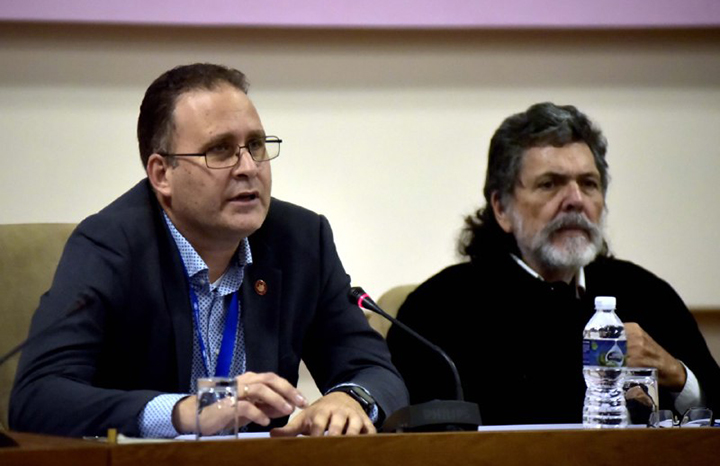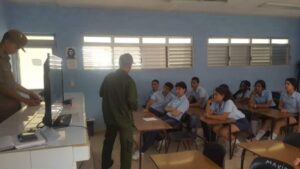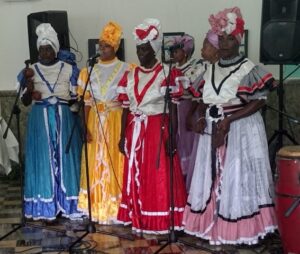Cultural colonisation, a high-priority issue for the country’s leadership, is once again on the agenda of the Education, Culture, Science, Technology and Environment Commission of the National Assembly of People’s Power (ANPP).
As a prelude to the Fourth Ordinary Session of the ANPP in its 10th Legislature, the update of the programme «Sowing Ideas, Sowing Conscience» against domination in the field of culture was analysed today by Abel Prieto Jiménez, president of Casa de las Américas.
For the Communist Party of Cuba (PCC) and the government at all levels, this strategy has been a priority that pursues unity and coherence in terms of stimulating critical thinking in the public, said Prieto Jiménez.
«Sowing ideas, sowing conscience» has been taken to all the territories of the country, with an anti-colonial and multi-sectoral approach, he said.
Prieto Jiménez called on people to hold on to the history and ideas of José Martí and Commander in Chief Fidel Castro Ruz, who were visionaries on this issue.
The intellectual recommended, for example, the discussion of quality films in spaces such as schools and also in the media.
Luis Morlote Rivas, an official of the Central Committee of the PCC and vice-president of the Commission, recalled the beginnings of the programme in 2022, as a result of the government’s will against the pseudo-cultural and trivialising offensive, as Fidel had warned early on.
According to Morlote Rivas, cultural colonisation is neither a recent phenomenon nor exclusive to the machinery of contemporary manipulation, but it has multiplied in the 21st century with the technological advances of the entertainment industry and digital networks.
He said that Cuba is the target of attacks on all possible platforms, like other peoples who defend their sovereignty and their right to build an alternative model to neoliberal capitalism.
In the official’s words, there is an undeniable connection between cultural colonisation and the new fascism, a phenomenon that is growing in Europe, the United States and Latin America.
Young people are leaning towards the ultra-right, and are expressing themselves with expressions of xenophobia, misogyny, racism and homophobia, recruited by social networks, he said.
From these platforms that appeal to the emotions, they misinform and promote values and principles that are alien to those that the Cuban socialist project defends, in order to damage the unity of the Revolution, Morlote Rivas noted.
He recommended to the deputies of the Committee on Education, Culture, Science, Technology and Environment that it is essential to promote rigorous debates in all possible spaces that allow for the construction of critical and committed thought in the face of the colonising wave.
Morlote Rivas concluded that Cuba has the potential to stop this phenomenon through cultural and educational institutions, multimedia platforms and social organisations, which families should join.
The debates of the parliamentary committee were attended by Alpidio Alonso Grau, Minister of Culture.




